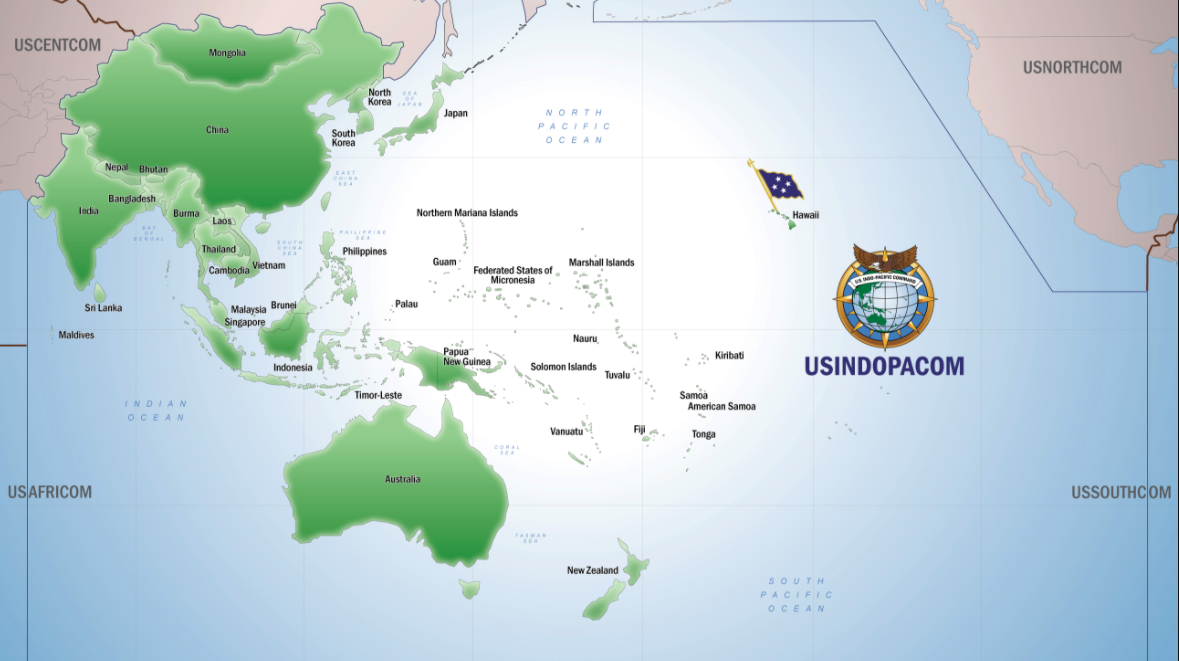Because the Aukus Pact makes US partners in Asia uncomfortable

Some Indo-Pacific countries, writes Le Monde, fear they will have to abandon the "neutrality" they have adopted in the rivalry between Beijing and Washington.
The trilateral Aukus pact between Australia, the United Kingdom and the United States, accompanied by Canberra's purchase of American nuclear-powered submarines , is a new step in Washington's strategy of open confrontation with China and is making its own people uncomfortable. allies and partners in the Indo-Pacific region, writes Le Monde . For this pact to be, as Washington wants, the beginning of a strategic realignment in its favor in a part of the world where its global leadership is at stake, the goals must be shared. But they are shared only up to a point.
In Asia Pacific, China's aggressive expansionism is certainly a unifying concern. And any confirmation of the US commitment to the region is welcome. As a reminder, the Aukus Pact is also an indicator for the United States that it expects to see more activism from its allies or partners to counter China's hegemonic ambitions. In addition to the acceleration of the arms race that this entails, there is an even more worrying risk for the countries of the region: having to abandon the "neutrality", declared or not, which they have adopted in the China-US rivalry. Welcomed in Manila, Taipei and Tokyo, Aukus is causing concern elsewhere.
Japanese Prime Minister Yoshihide Suga, visiting Washington for the first face-to-face meeting of the leaders of the Quadrilateral Security Dialogue (QSD), which brings together Australia, the United States, India and Japan, welcomed "the important step forward for the stability of the Indo-Pacific region ”that Aukus would represent. The "Chinese threat", real or not, but felt as such in Japan, is, for the Liberal Democratic Party in power, an argument that legitimizes its ambition to revise the pacifist Constitution to allow the archipelago to participate in collective defense actions , or even to carry out pre-emptive attacks.
CONCERN ABOUT EQUIDISTANCE
In a stable environment, it would be difficult for the conservative camp to go against the pacifist doctrine that most Japanese people support. Repeated forays by the Chinese navy into Japanese territorial waters and legal battles over the sovereignty of uninhabited islets in the East China Sea serve them to fuel this sense of threat. "Any agreement that limits China's aggressive behavior is welcome in Japan," said Masayuki Tadokoro, a political scientist at Keio University in Tokyo.
Other countries in the region are less enthusiastic about the idea of having to position themselves openly in the American camp against China. This is the case in South Korea, a US ally with 28,000 GIs on its soil. Seoul intends to maintain a margin of maneuver towards Beijing and avoid any frontal confrontation. China is its largest trading partner and a major player in the North Korean crisis.
The same concern for equidistance animates the countries of Asean (Association of Southeast Asian Nations). So far, they have relied on American military might to contain China, while benefiting from the economic growth of China, which has become their main trading partner. Many of them are also home to influential Chinese communities. The territorial disputes between the Asean countries and China do not make China look good, but the economic prosperity of the region depends on it. If China joins the Trans-Pacific Comprehensive and Progressive Partnership, a free trade pact signed in 2018, as it requested, its regional economic influence will be strengthened.
INDIA AS A "WEAK RING"
With the US attitude towards China increasingly taking on the air of a crusade for freedom and democracy against an expansionist and hegemonic power, it will be difficult for the Asean countries not to take sides openly. The two superpowers, for their part, cannot tolerate the deviations or hesitations of their partners. "Aukus will increase instability in the region," says Natasah Kassam, director of foreign policy programs at Sydney's Lowy Institute. Malaysia has already warned that Aukus could push "other powers" to act more aggressively in the South China Sea, risking an escalation.
For the strategy to curb Chinese expansionism to be effective, Aukus will need to be synchronized with existing agreements, starting with the Quad. Initially an informal grouping of the region's four major democracies aimed at safeguarding freedom at sea, this partnership now aims to make the Indo-Pacific region an "open and inclusive space" with an eye on China.
The rest of the region agrees with this principle, but is reluctant to commit: “India will never give up its strategic autonomy. India is the weakest link in this partnership, ”says Tadokoro. It borders China and is not a staunch ally of the United States. As for Japan, “it is bound in military matters by the constraints of its Constitution”.
According to Australian Prime Minister Scott Morrison, Aukus and Quad "reinforce each other". The first plays on deterrence and the second focuses on non-military actions. “In Asia, there are multifaceted and overlapping security partnerships, but none of them are as unique as NATO,” says Masayuki Tadokoro. Furthermore, history as well as China's geographical proximity makes the geopolitical equation in the Indo-Pacific infinitely more complex than an agreement like Aukus suggests, which was made between three Western world powers, even though Australia is geographically out of the way. but no.
(Extract from the foreign press review by Epr Comunicazione)
This is a machine translation from Italian language of a post published on Start Magazine at the URL https://www.startmag.it/mondo/perche-il-patto-aukus-mette-a-disagio-i-partner-degli-stati-uniti-in-asia/ on Sun, 03 Oct 2021 05:45:45 +0000.
